Shared Mobility - Emissions and Congestion
Promoting The Use of EVs by Upgrading Parking Infrastructure
The project is a part of proposals to achieve zero emissions goals in Amsterdam, The Netherlands and Vancouver, Canada, while also addressing traffic congestion, without significant changes to road infrastructure.
Smart parking sensors to detect whether parked cars are EV or not
Detects whether parked car is an EV or not
- Ultrasonic sensors are used to detect the different layouts in conventional and electric cars
- Noise sensors are used to detect the differences in engine sounds between conventional and EVs
- Two different types of magnetic sensors are used to detect the electric field of an EV engine.
Connects with charging station and parking meters (LoraWAN)
- Automatically provide discounted rates
Detects emissions
- A number of sensors were used to collect emissions and air quality data
Connects with car sharing app
- Provides discounted rates for riders as well as locations of EV parking
The parking sensors are a part of a combined solution that promotes the usage of EVs in car sharing through incentives, such as discounted parking and charging for EV drivers.
The combined solution allows for:
⚪Increasing car sharing productivity: Reduce number of cars on roads and their overall total distance travel
⚪Promoting the use of Electric Vehicles: Overall decrease the concentration of Green House Gasses emissions
⚪Reproducibility in cities in the Lower Mainland: Implement feasible solutions to achieve sustainability initiatives’ goals without significant changes to the infrastructure
Sensors used:

Several sensors displayed during testing. Pyroelectric sensor is used to detect the presence of a car, ultrasonic sensors map the bottom of car’s topology, and a carbon monoxide sensor measures CO concentrations.
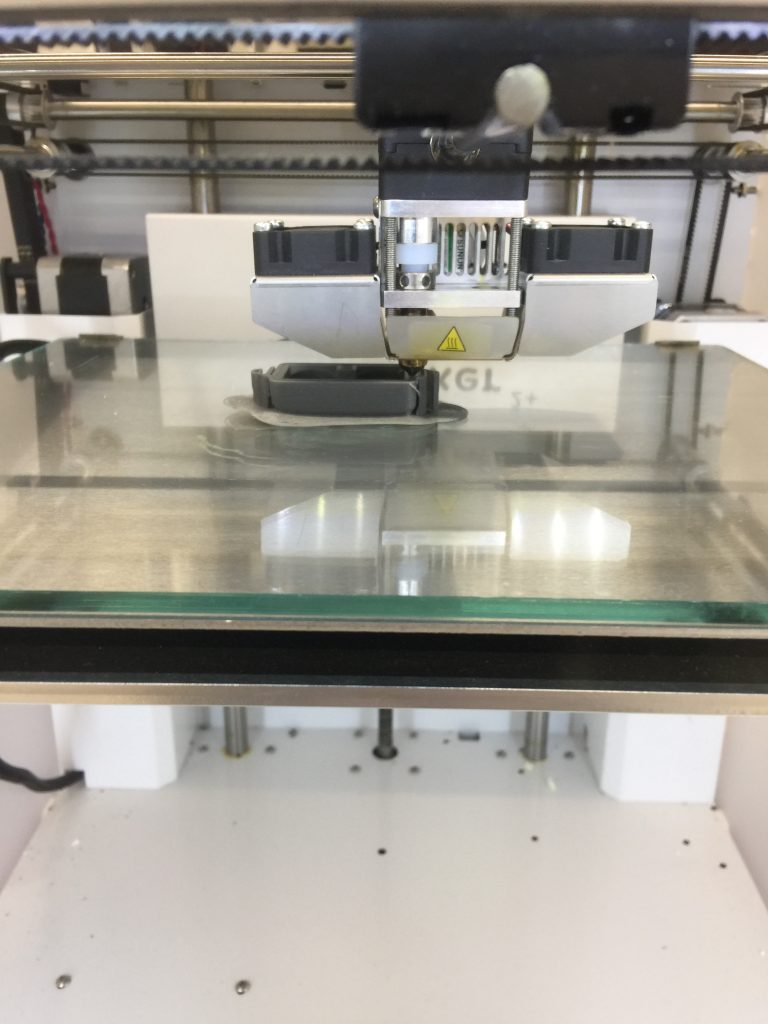
3D printed casing for some of the sensors
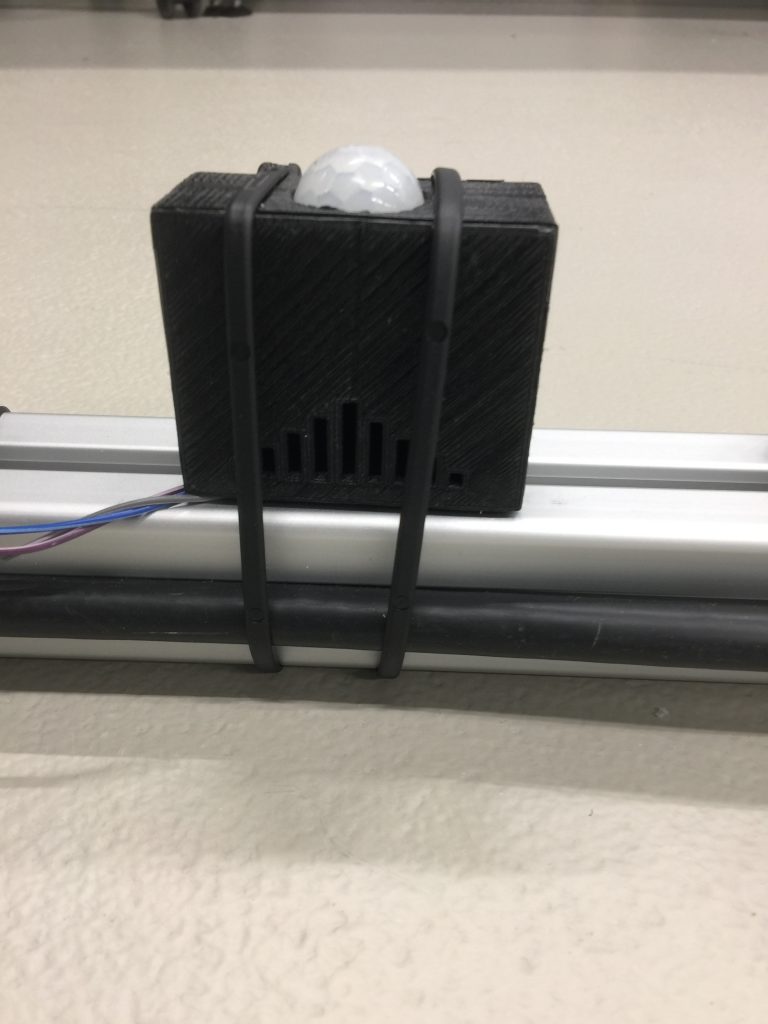
Sensors are mounted on a long rod for easier testing.

Ultrasonic sensors are spread out to map out the bottom of the car
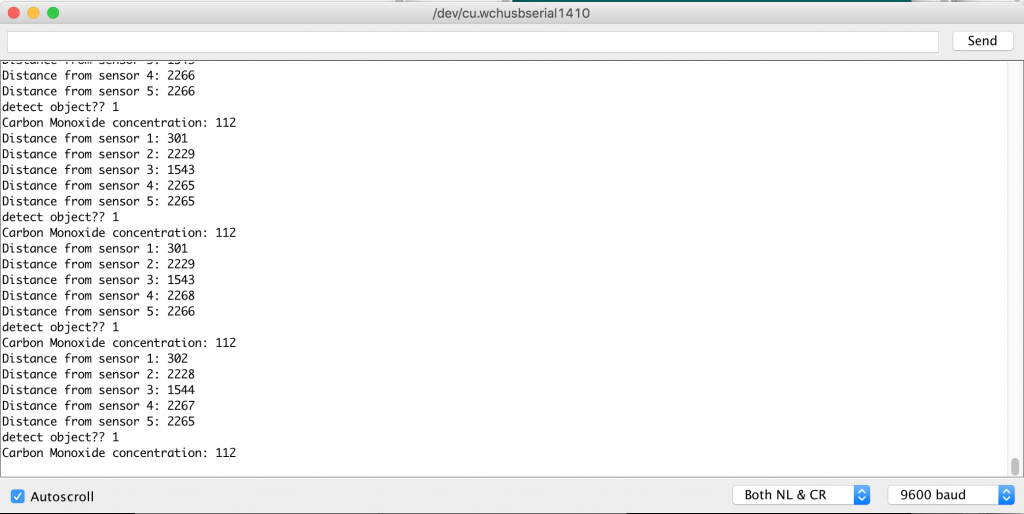
Testing pyro, ultrasonic, and CO sensors
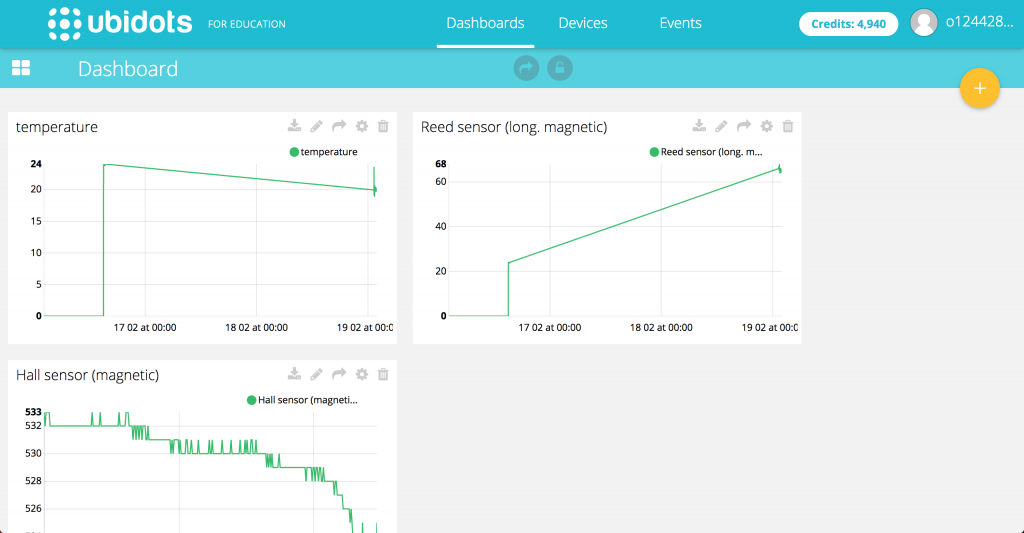
Testing temperature and magnetic sensors, as well as connectivity to an online IoT platform (Ubidots).
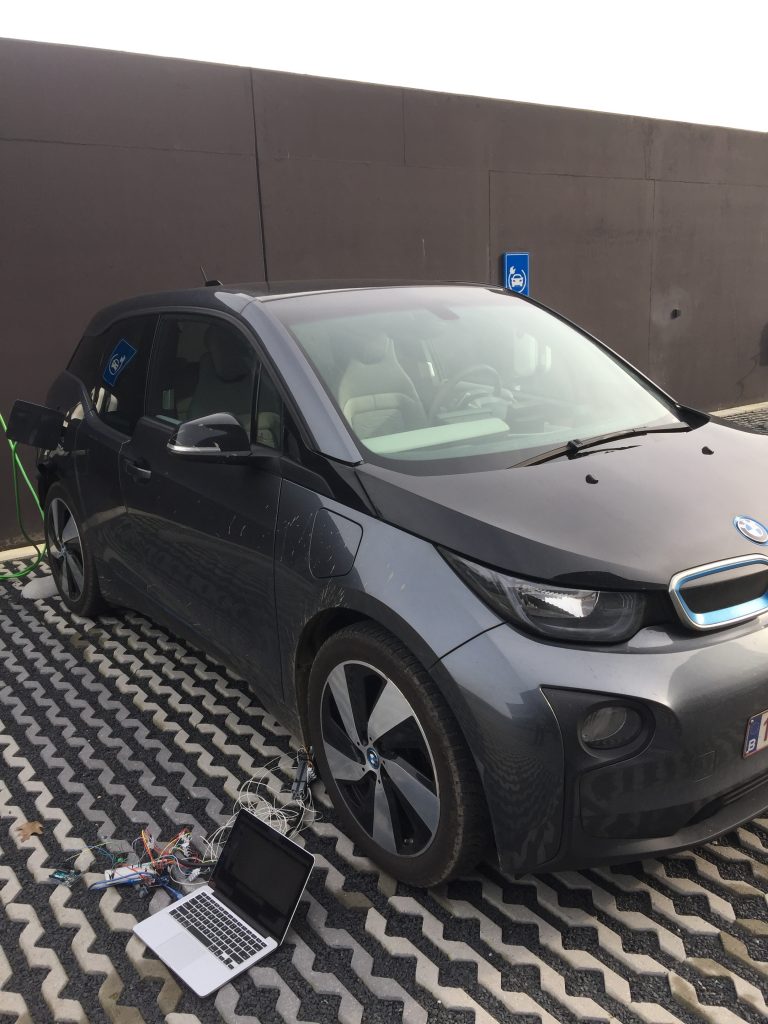
Testing sensors on an EV car.

Sensors map out the bottom of a conventional car.
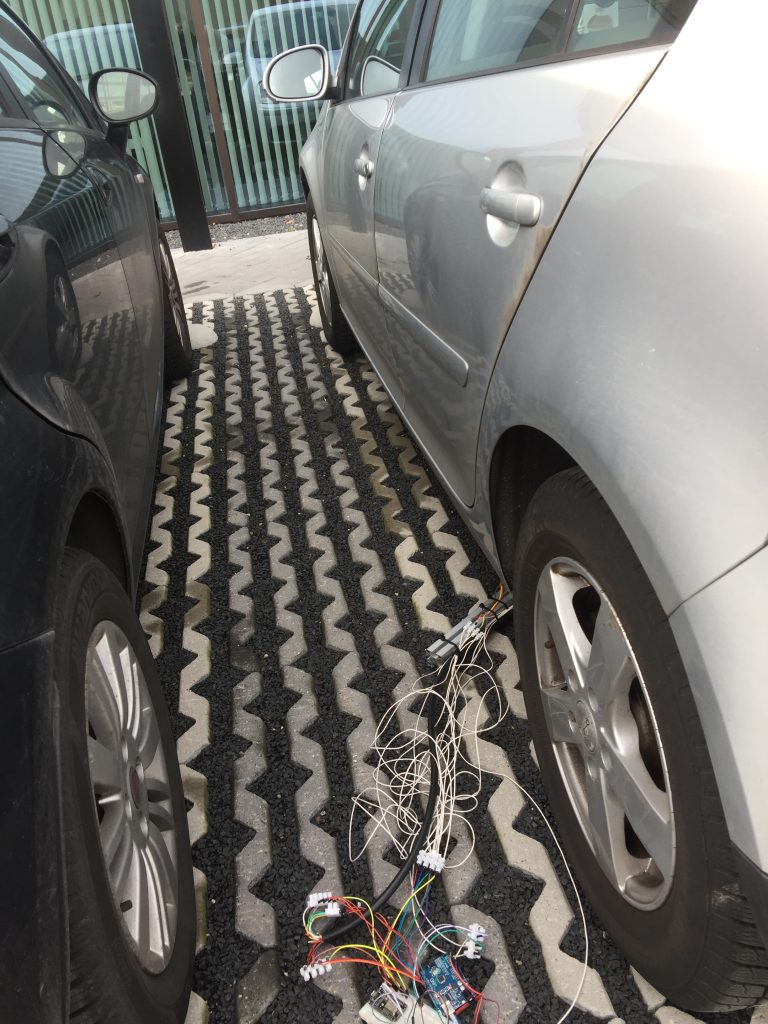
Sensors map out the bottom of a conventional car.
